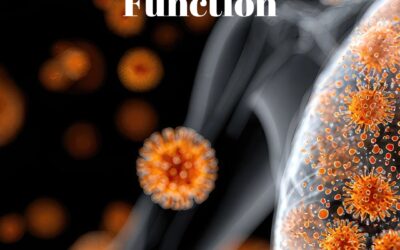A recent study showed that brain inflammation was 30% higher in individuals with obsessive-compulsive disorder (OCD) than others without the disorder.1 OCD is characterized by intrusive thoughts, images, or impulses creating emotional distress. Individuals with OCD are severely inhibited in their interactions with others, and daily life due to these experiences.
Center for Addiction and Mental Health Study
The study, conducted by the Center for Addiction and Mental Health (CAMH), looked at brain images correlating inflammation with OCD. It was the first time that brain inflammation was shown to be significantly elevated in individuals suffering from the disorder compared with people without the condition. In a press release, Jeff Meyer, senior author of the study and head of the neuroimaging program in mood and anxiety in CAMH’s Campbell Family Mental Health Research Institute, says: “This finding represents one of the biggest breakthroughs in understanding the biology of OCD, and may lead to the development of new treatments.”
Inflammation Commonly Addressed by Naturopathic Physicians
Currently, treatment centers around cognitive behavioral therapy (CBT), which is considered the first-line treatment option for OCD. It is estimated that the medications which are additionally utilized – SSRI’s – are ineffective in two thirds of cases, especially when not combined with CBT. This research may offer up a vital mechanism by which to address the biology alongside the psychology of this disorder. Inflammation is something that is commonly addressed by naturopathic physicians and holistic practitioners. Having research which supports concentrating efforts in this area for a specific patient population adds validity to certain dietary and natural therapies.
Inflammation may Correlate with the Severity of the Disorder
The study itself, looked at 20 individuals with OCD and a control group of 20 people without the disorder. Positron emissions tomography (PET) scans were utilized to appreciate areas of active inflammation in various brain areas. People with OCD were observed to have 32% higher inflammation in these brain regions than the control group. Furthermore, individuals who subjectively experienced the greatest degree of anxiety or stress when they attempted to avoid acting out their compulsions also had the highest levels of inflammation. This suggests that inflammation may correlate with the severity of the disorder.
Sources
- Center for Addiction and Mental Health (2017, June 21). Human Voices Are Unique But We’re Not That Good at Recognizing Them. NeuroscienceNew. Retrieved June 21, 2017 from http://neurosciencenews.com/ocd-brain-inflammation-6953/
- American Psychiatric Association. (2013). Diagnostic and statistical manual of mental disorders: DSM-5. Washington, D.C: American Psychiatric Association.
Image Copyright: <a href=’https://www.123rf.com/profile_sifotography’>sifotography / 123RF Stock Photo</a>
 Node Smith, associate editor for NDNR, is a fifth year naturopathic medical student at NUNM, where he has been instrumental in maintaining a firm connection to the philosophy and heritage of naturopathic medicine among the next generation of docs. He helped found the first multi-generational experiential retreat, which brings elders, alumni, and students together for a weekend camp out where naturopathic medicine and medical philosophy are experienced in nature. Three years ago he helped found the non-profit, Association for Naturopathic ReVitalization (ANR), for which he serves as the board chairman. ANR has a mission to inspire health practitioners to embody the naturopathic principles through experiential education. Node also has a firm belief that the next era of naturopathic medicine will see a resurgence of in-patient facilities which use fasting, earthing, hydrotherapy and homeopathy to bring people back from chronic diseases of modern living; he is involved in numerous conversations and projects to bring about this vision.
Node Smith, associate editor for NDNR, is a fifth year naturopathic medical student at NUNM, where he has been instrumental in maintaining a firm connection to the philosophy and heritage of naturopathic medicine among the next generation of docs. He helped found the first multi-generational experiential retreat, which brings elders, alumni, and students together for a weekend camp out where naturopathic medicine and medical philosophy are experienced in nature. Three years ago he helped found the non-profit, Association for Naturopathic ReVitalization (ANR), for which he serves as the board chairman. ANR has a mission to inspire health practitioners to embody the naturopathic principles through experiential education. Node also has a firm belief that the next era of naturopathic medicine will see a resurgence of in-patient facilities which use fasting, earthing, hydrotherapy and homeopathy to bring people back from chronic diseases of modern living; he is involved in numerous conversations and projects to bring about this vision.





















